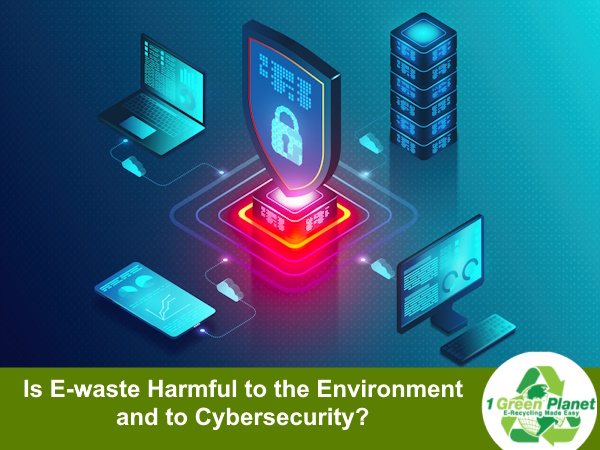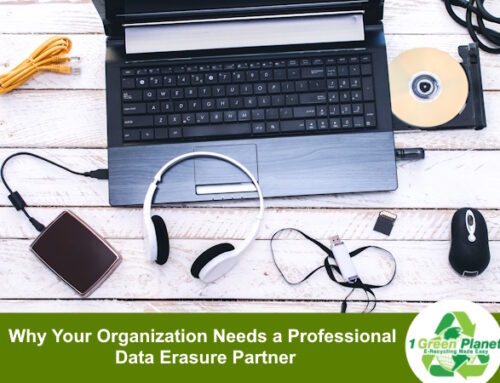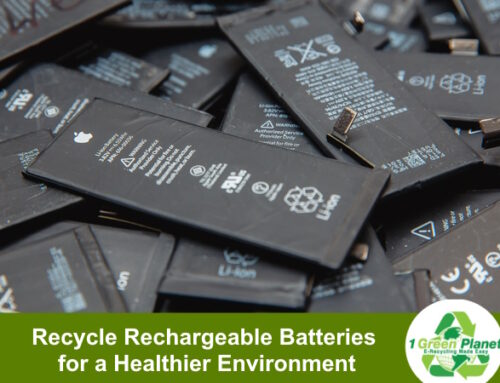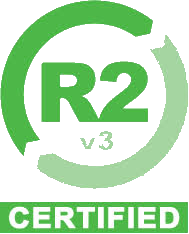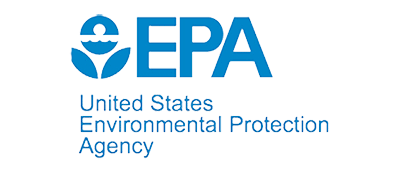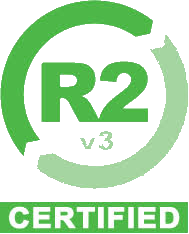Published on August 14, 2023, Updated on August 15, 2023
E-waste is a problem of epic proportions that escalates even more. A staggering 57.4 million metric tons of obsolete electrical and electronic equipment were dumped into landfills in 2021. This irresponsible treatment of electronic refuse will contaminate the environment with the harmful chemicals that leak from these devices.
However, e-waste is not the only issue. There is also the risk of cyber security breaches caused by these devices. Discarding an old phone carelessly can result in identity theft, hacked passwords, financial fraud, and even violations of homeland security. Unfortunately, this problem is rarely discussed whenever e-waste is the topic of discussion.
Nonetheless, it is a ticking tinderbox of potential security breaches of every type. To protect oneself, one’s family, and one’s workplace from these dangers, we must treat e-waste seriously. Deleting the files manually is ineffective, and removing data from hard drives requires assistance from professionals. Here’s a perspective to see the extent of this issue.
The Scale Of The Issue
Most people do not perform a comprehensive cleaning before selling, donating, or disposing of their old devices. The majority of electronic devices sold in used-goods stores are either not password protected or have simple, hackable passwords. Drives and folders are not correctly sanitized, making data extraction simple for anyone with sufficient knowledge.
The Situation Worsened by the Pandemic
E-waste has been a significant issue for decades, but the pandemic has worsened the problem. With the work-from-home setup, personal computers became workplace computers. Employees were required to set up and view company/client data on computers that were likely less secure than work computers. In addition, the increased demand for these electronics stimulated the secondary market. Either we replaced our old computers with newer, faster ones, or we had to purchase used computers in a compromised situation.
How certain are we that the used laptop we purchased during the pandemic is not compromised? Here are 5 methods to ensure that the gadget you are selling, disposing of, or donating does not present a cyber-security risk to you or anyone else.
-
Promote a culture of green electronic usage
Invest in durable devices and resist the temptation to purchase a new gadget whenever a newer model becomes available. Consider selling or donating your old gadgets instead of discarding them away or allowing them to decompose in your home to reduce waste as much as possible.
Why Recycling Electronic Waste is Crucial
-
Ask before donating or selling used technology
Consider donating your obsolete device or selling it back to the manufacturer when you need to replace it with the latest technology. Some manufacturers have programs that allow you to trade in your obsolete device for discounts, store credit, and other incentives. However, it is your responsibility to inquire further. Here are some questions to ask them.
- How well-known are they in the marketplace?
- Who is their recycling partner?
- What is their method for recycling a product?
- Do they discard the components that are destined for disposal?
- What happens to the components deemed for disposal?
-
Remove all personal data before discarding your system
Security risks are common and expensive, so you should prevent your device from this. Remove all of your personal information from your gadget prior to permanently giving it to someone else. The Federal Trade Commission of the United States has published a helpful guide to help you learn how to eliminate remaining data. First is to create a data backup and then log out of all online accounts, including social media, websites, email, banks, and apps. Disable the gadget from your Wi-Fi and ensure that your device is turned off to prevent it from remembering any credentials. Additionally, you can search the internet for applications and software that aid in secure data disposal.
-
Establish an e-waste protocol scheme
Compared to personal computers, work PCs undergo more regular updates and replacements. Even though work computers are typically more protected from cyber security risks, it’s crucial to establish appropriate e-waste policies so that everyone is aware of what to do next.
Start by explaining to your staff how the e-waste problem is out of control and that a quick solution is required. Inform them of the small steps they can take to lessen the consequences. Share data, facts, and corporate guidelines.
Create drop-off locations for electronics at your workplace so that customers may drop off their used equipment. Work together with a nearby e-waste recycling business to handle the last phase.
Meet with your IT team and discuss the optimal balance between the most recent innovations and sustainable technology use.
Ensure that your e-waste protocol and policy are communicated to your personnel in a clear manner. It should be displayed in employee common areas and made digitally accessible for fast reference.
-
Employ the services of a qualified e-waste recycling company
Contact a professional e-waste recycling service to resolve the issue effectively. A company specializing in e-waste management will not only handle the recycling but also the hard drive disposal, ensuring that all of your personal and sensitive data is safe from intruders.
Look for a certified company that complies with all applicable rules and regulations. A reputable e-waste management company should also provide an open window into its processes and procedures.
You want a company that cares about the environment, is knowledgeable about the hazardous materials found in e-waste, and has methods in place to extract precious metals and transform them back into attractive, useful objects.
1 Green Planet is a certified e-recycling company that can recycle all of your discarded electronics, as well as wipe and obliterate your data following the approved rules and regulations. Call us and schedule a pickup at our service areas.

